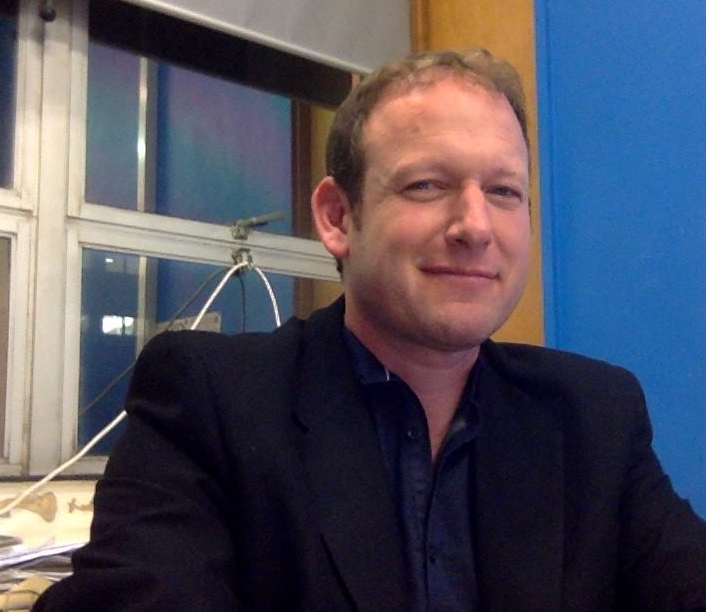Statistical Society of Australia warmly invites you to a workshop on Julia for Statistics and Data Science, presented by Yoni Nazarathy (The University of Queensland).
Workshop content
Day 1
From Hello World to GLMs
Friday July 24, 9am – 12:30pm (with working breaks in between)
Presenter: Yoni Nazarathy (The University of Queensland)
In this session we’ll cover basic usage of Julia as a scientific and statistical programming language. We will use both Jupyter notebooks (IJulia) and the Juno IDE (Julia Pro). After briefly introducing the principles of Julia, we’ll outline the basics of the language including types, multiple dispatch, control flow, using packages and environments, working with files, basic data structures, and data frames. We’ll use Plots.jl and StatsPlots.jl for plotting as well as functions from StatsBase.jl, Distributions.jl, and a few other useful packages. We’ll then carry out standard GLM model fitting using GLM.jl as well as basic linear algebra operations
The session assumes a statistical audience that has used a similar language (R or Python). Examples from the Statistics with Julia DRAFT book will be used as well as shorter one-liners. To get maximal benefit, it is recommended that attendees have Julia installed prior to the meeting. A YouTube video outlining how to install Julia, the Juno IDE, and Jupyter will be released prior.
The session will be broken up into 5 sections each of length 40 minutes. In each sub session, the instructor will present for 25 minutes and then allow for individual (guided) work for 15 minutes. It is recommended that in addition to taking a break, the attendees use the 15 individual minutes to explore the fresh content from that section independently (asking for help as needed).
Day 2
Further Julia from GLM via Dynamic Models to Flux.j
Monday July 27, 9am – 12:30pm (with working breaks in between)
Presenter: Yoni Nazarathy (The University of Queensland)
This session starts by first running through all of the basic language constructs that were overviewed in the previous session, but with a bit more detail. We then cover some basic experiments with elementary classic statistical inference. We then cover a few basic further examples including clustering, PCA, ridge regression, and Lasso. We continue onto deep learning where we create a basic example using Flux.jl.
Similar to the first session, this session is broken up into 5 sections each of length 40 minutes.
Note that the annual JuliaCon (free and virtual this year) will take place in the same week, two days after this session. Attendees to the workshop are encouraged to attend Julia Con as well.
Timetable
Both sessions (days) start at 9am and finish at 12:30 pm. This is 210 minutes. There are five sections per session with each session involving 25 minutes of instructor presentation and 15 minutes of self work (and individual breaks as needed). There are 10 minutes spare at the end for discussion and farewell.
Sections will start at 9:00, 9:40, 10:20, 11:00, and 11:40.
Instructor Bio
Associate Professor Yoni Nazarathy from the School of Mathematics and Physics, specializes in data science, probability, and statistics. His specific research interests include scheduling, control, queueing theory, and machine learning. He has been at UQ for nearly a decade, teaching courses at UQ’s Masters of Data Science program and working on research. Prior to his previous academic positions in Melbourne and The Netherlands, he worked in the aerospace industry in Israel. In recent years, he has also been heavily involved with primary and secondary mathematics education and is the co-founder of an EdTech mathematics organizations called One on Epsilon. Also, he is the co-author of an introductory data science book with a draft available online: Statistics with Julia.
Like many other mathematics and physics academics, he took great interest in epidemics at the start of COVID-19 and in addition to his co-authored Safe Blues program, he co-organizes a weekly pandemic (Zoom) seminar at the School of Mathematics and Physics.

Expenses:
Occasionally workshops have to be cancelled due to a lack of subscription. Early registration ensures that this will not happen. Please note that the Society will not be held responsible for any financial loss incurred due to a workshop cancellation.
Financial Support:
Financial support for SSA Vic members can be sought. For further information, please see: https://sites.google.com/view/ssavicworkshopfinsup.
Contact:
Please contact the organisers: Rheanna Mainzer (rheanna.mainzer@gmail.com) and Daniel Fryer (danielvfryer@gmail.com) for further details.
